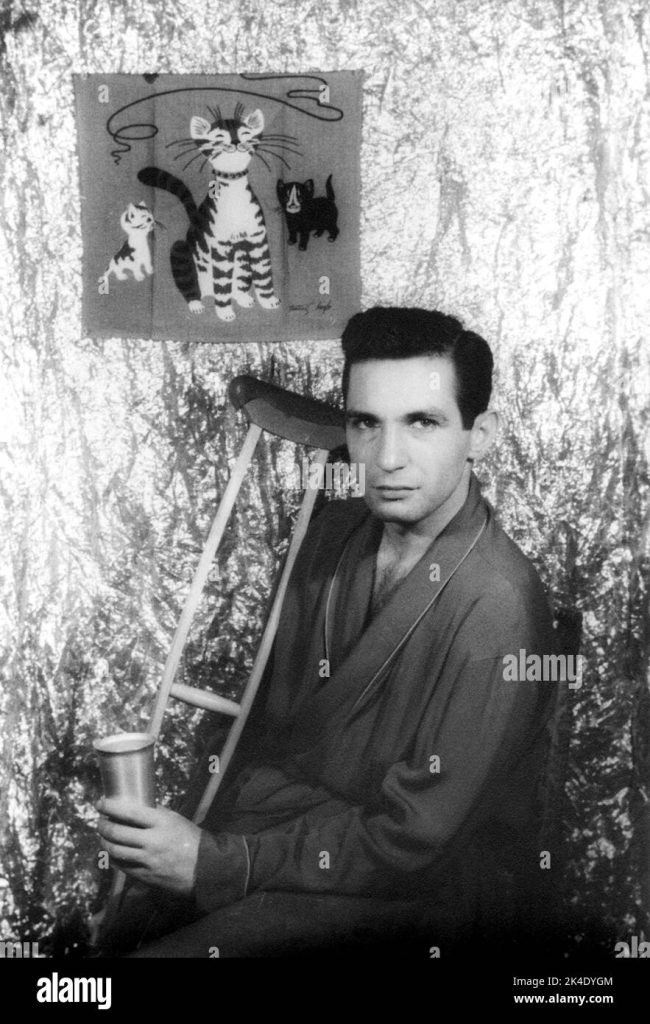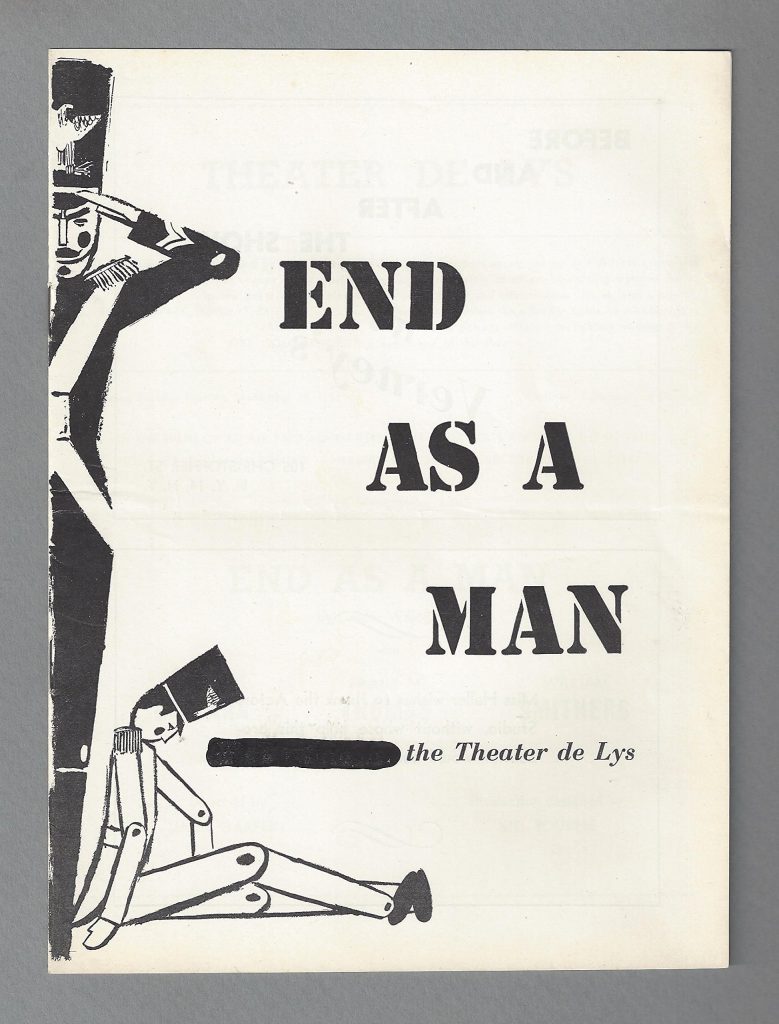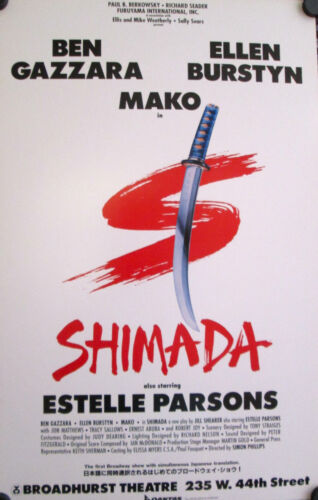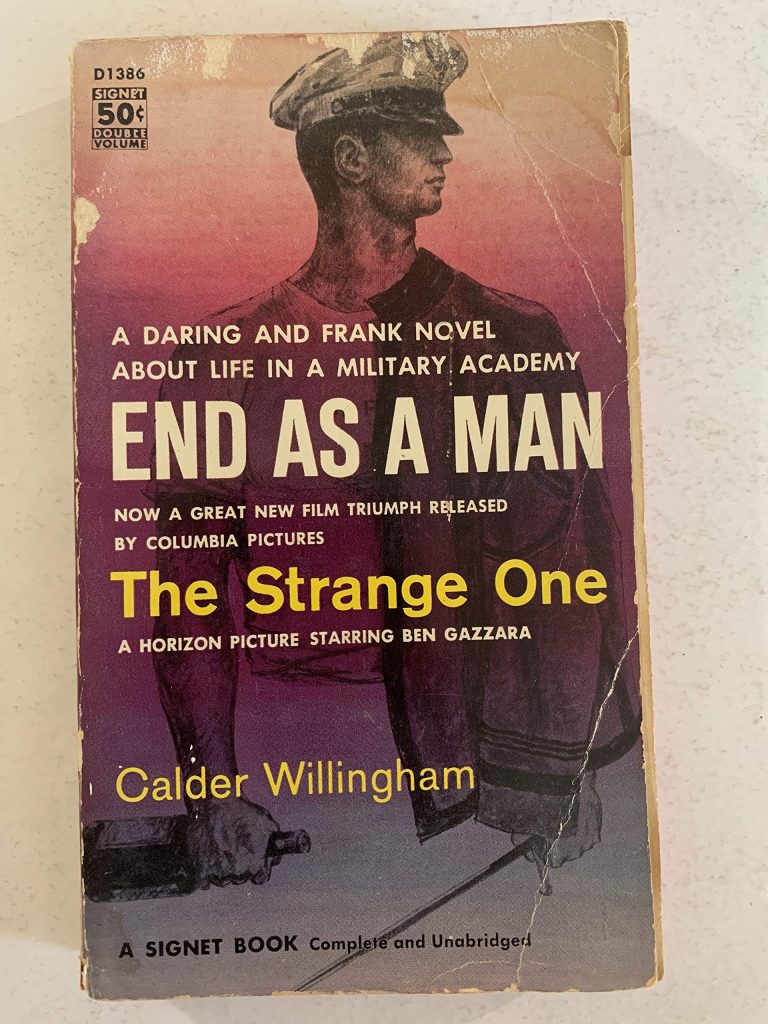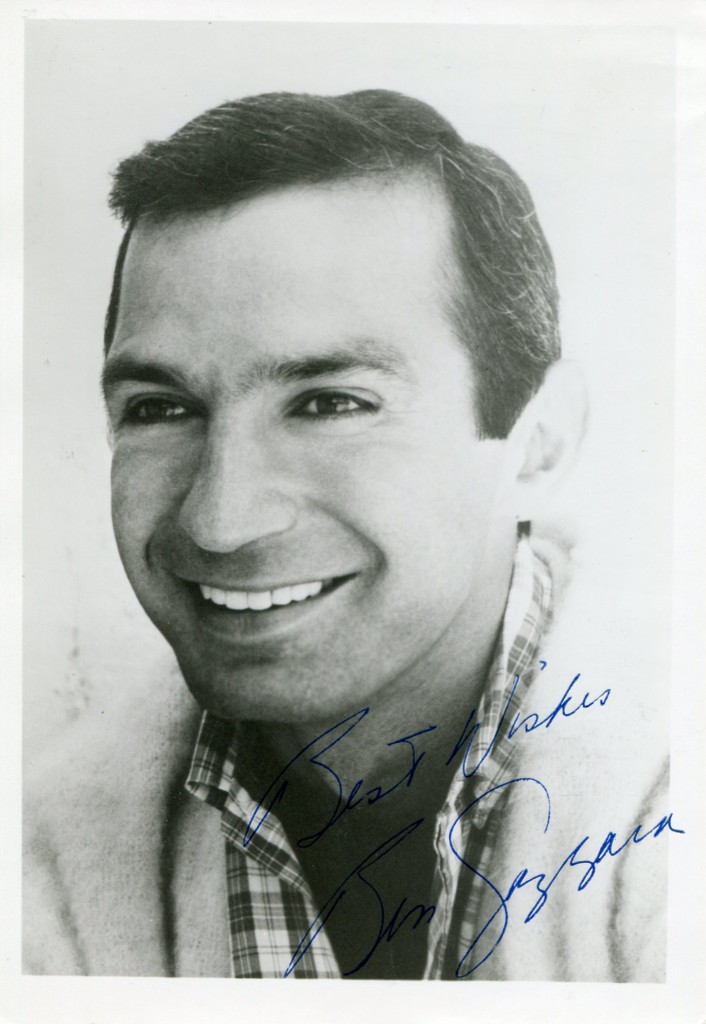
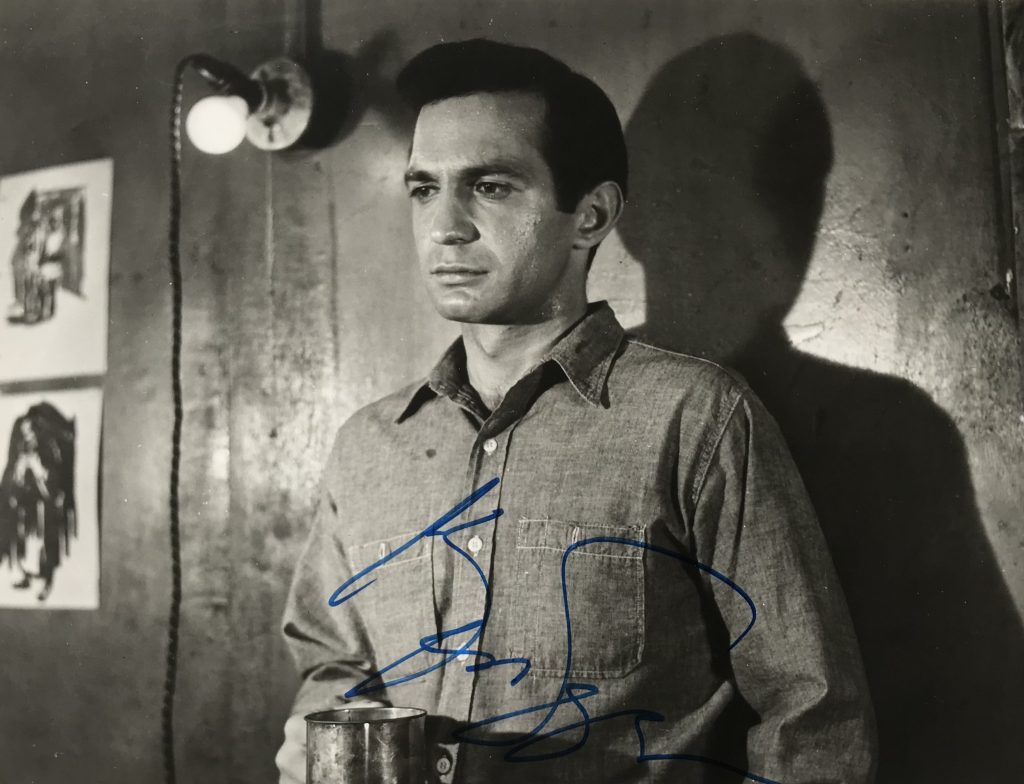
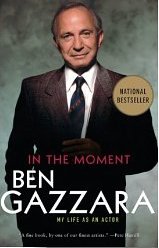
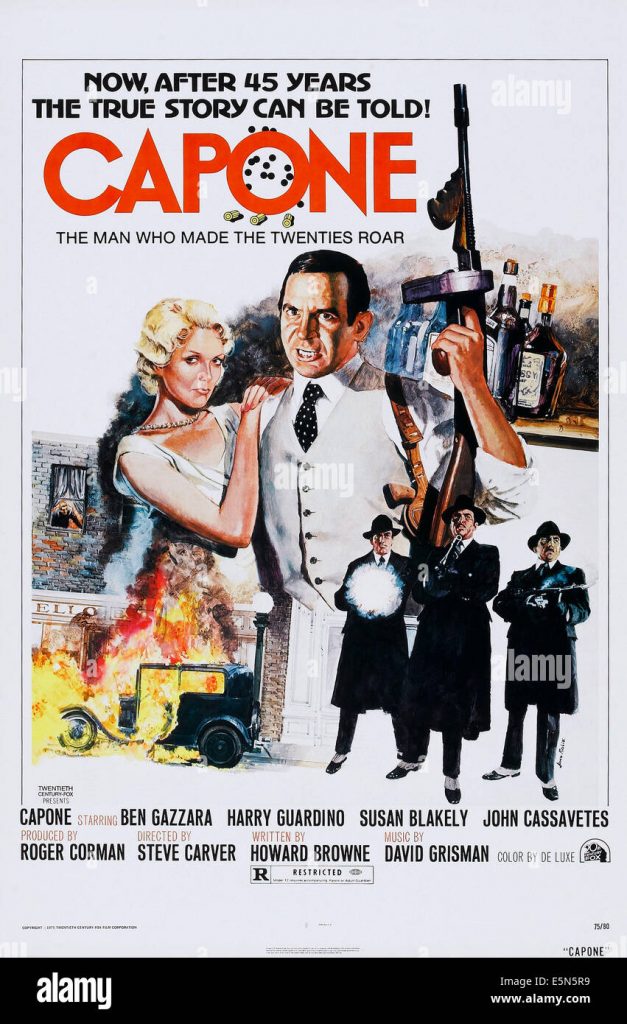
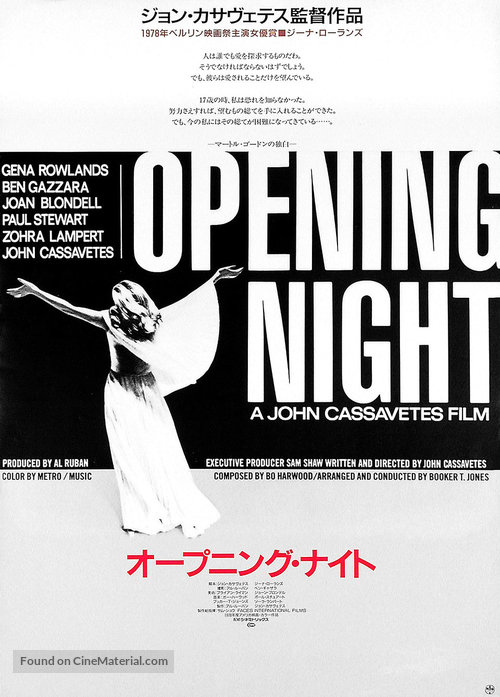
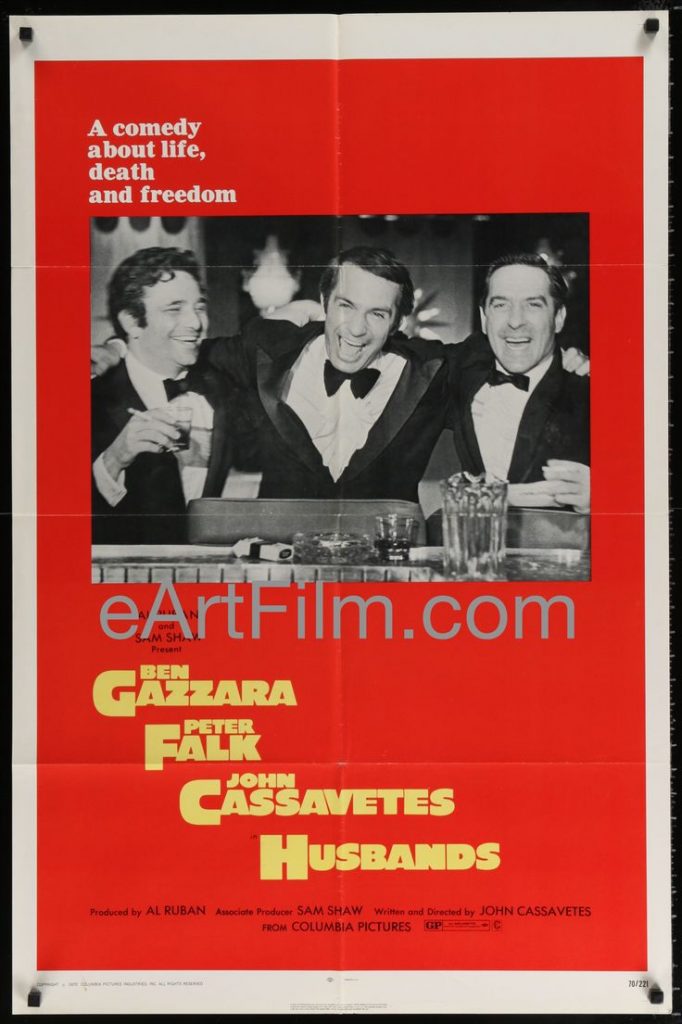
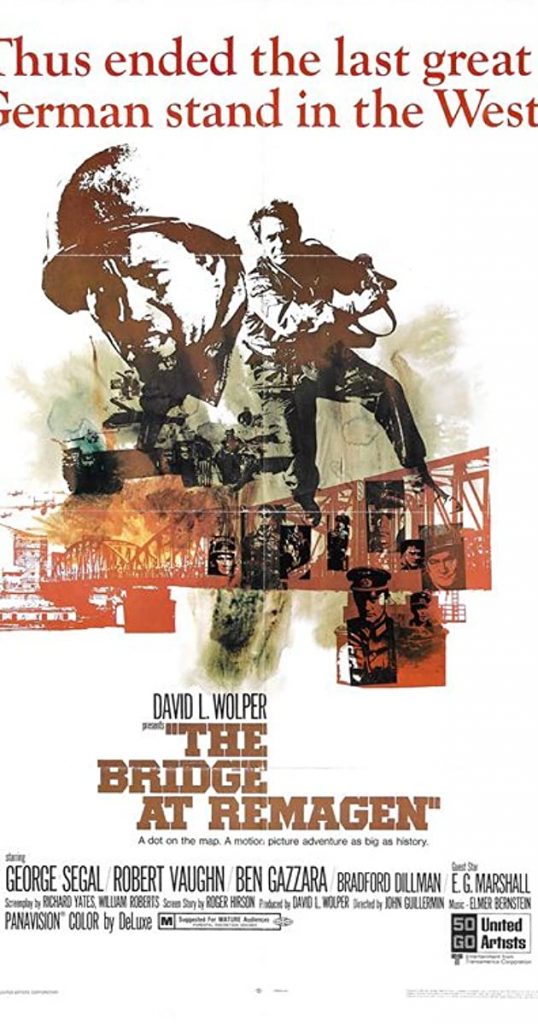
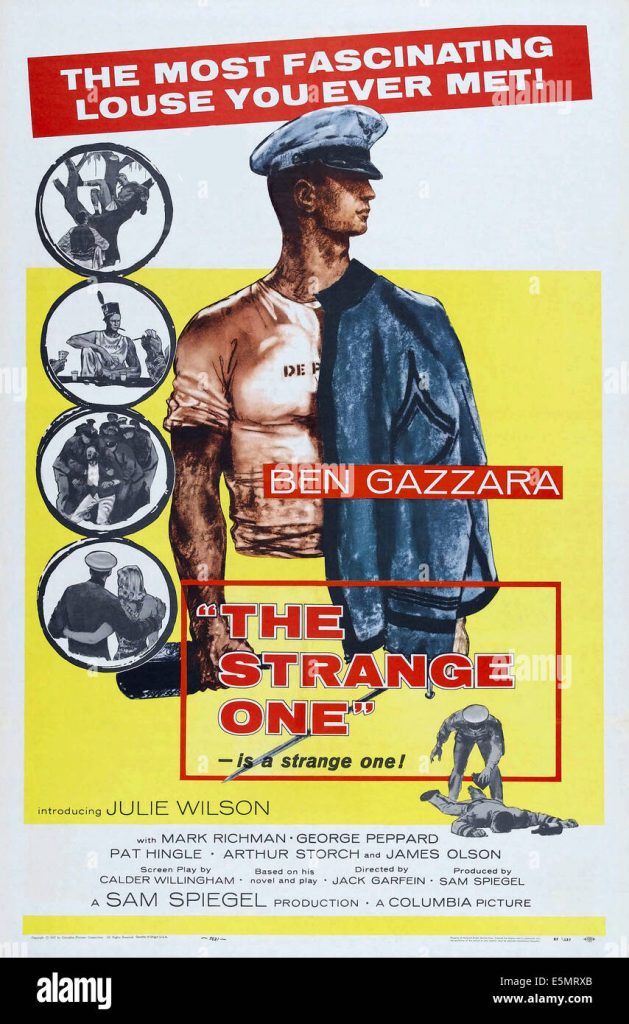
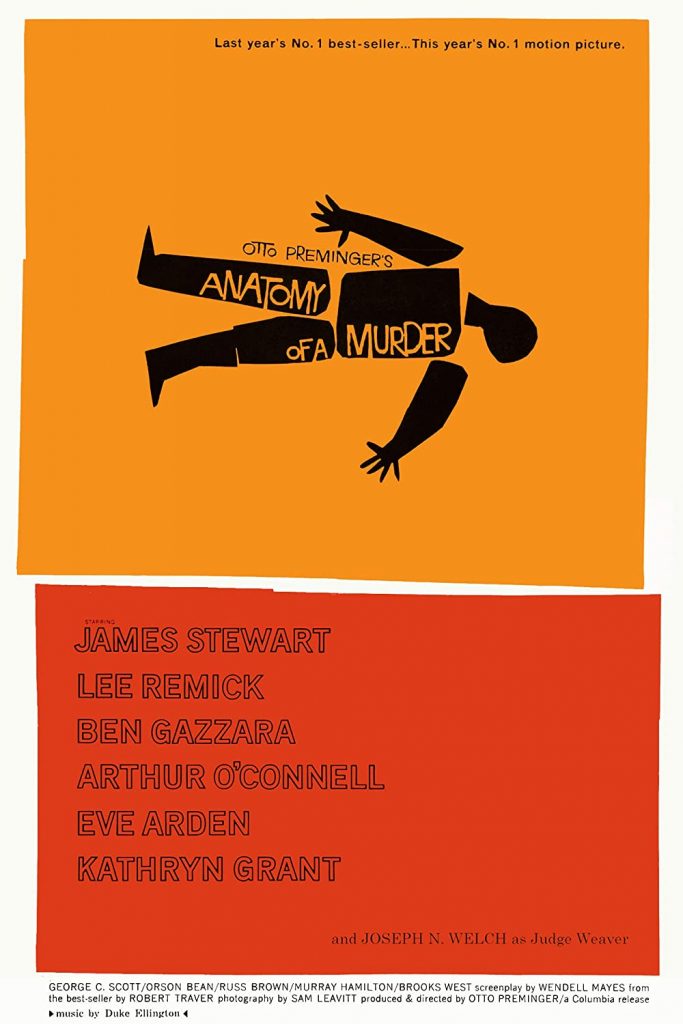
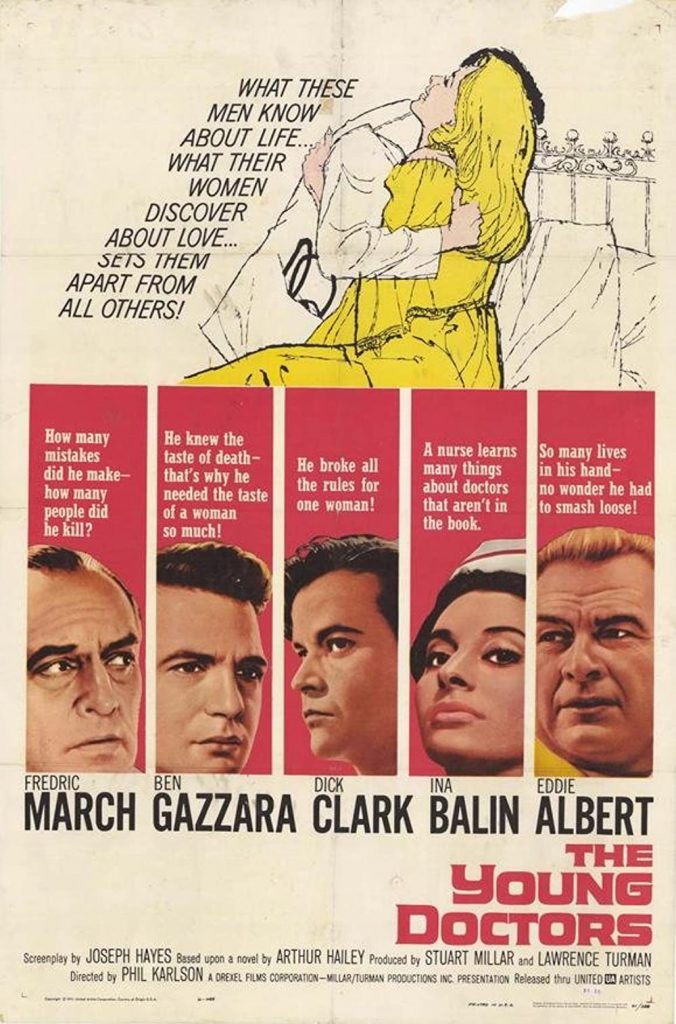
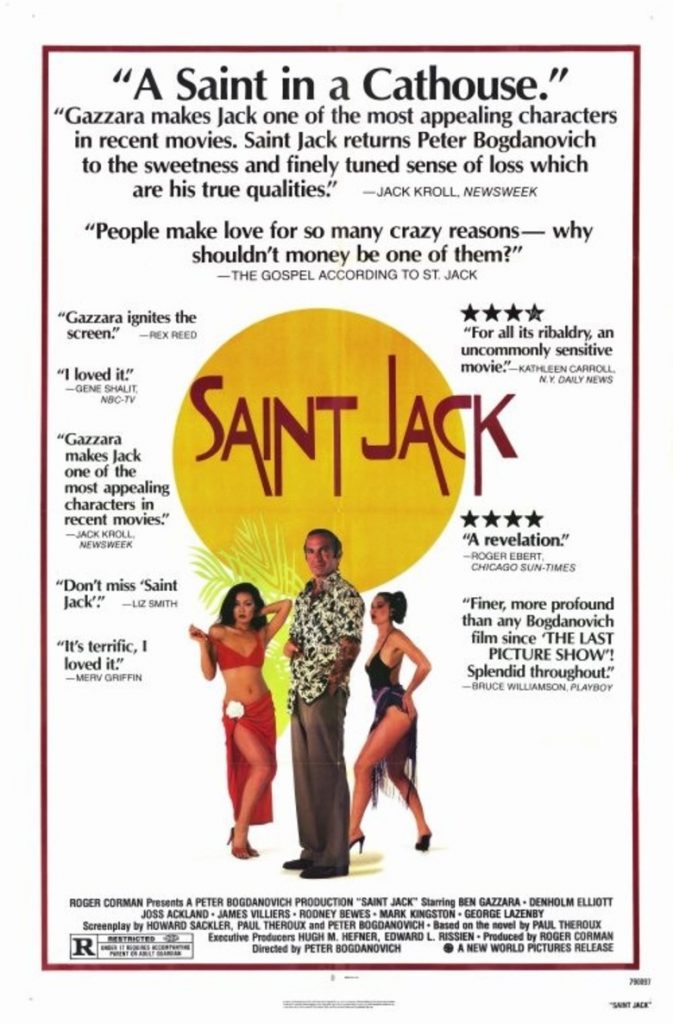
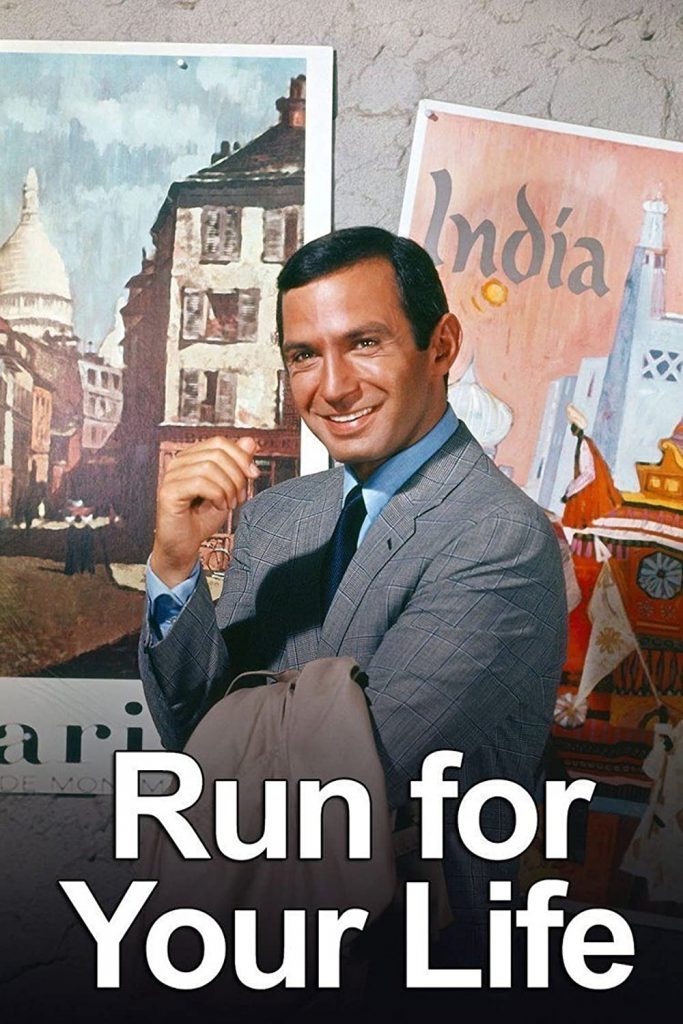
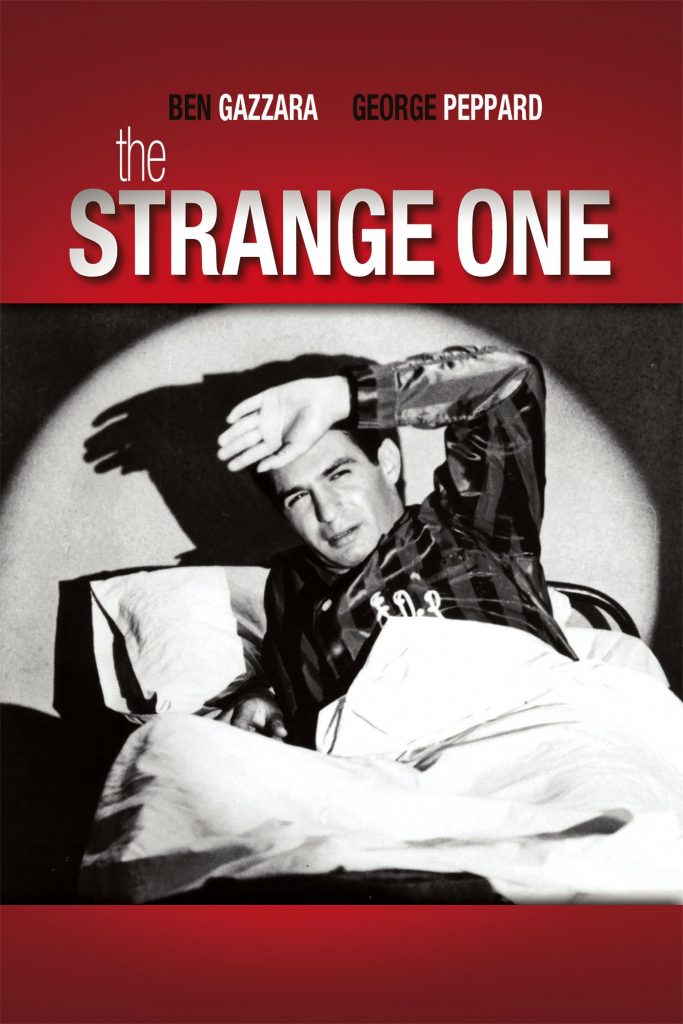
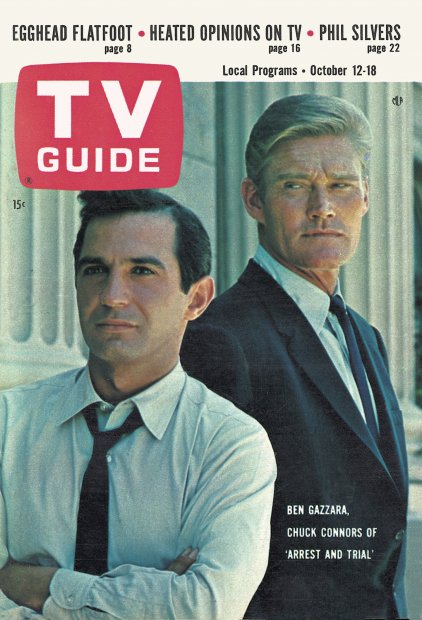
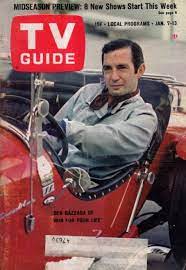
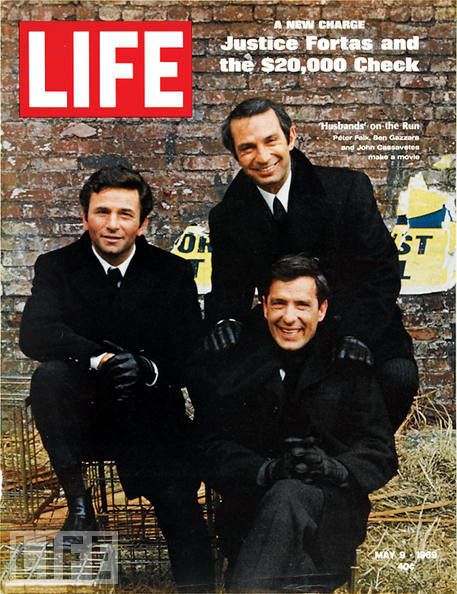
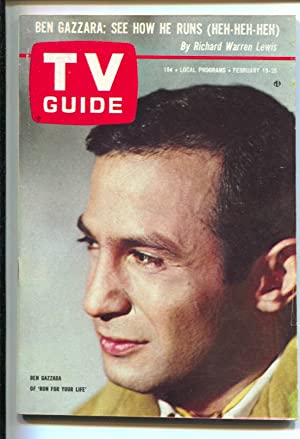
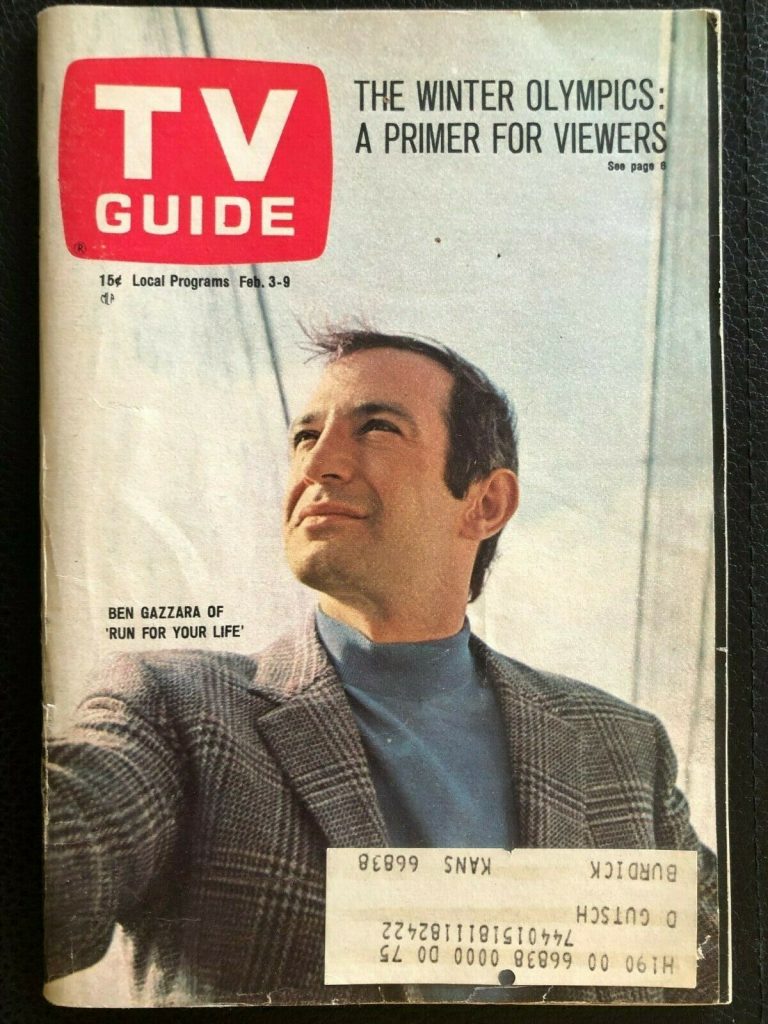
“Ben Gazzara is probably best known for his work in two television series – “Arrest and Trial” and “Run for Your Life” – which is ironic, because he does TV only for the money. He cares enough about films (or did) that in 1956 he turned down one of the leads in King Vidor’s “War and Peace” because he did not want to be merely part of a spectacle. He was then one of the cinema’s most promising new stars – and to date that promise has beeen largely unfulfilled. he is a sympathetic actor – but at that time he gave of the definitive great performances of evil” – David Shipman – “The Great Movie Stars- The International Years” (1972).
Ben Gazzara was born in 1930 in New York City. His parents were from Italy. He won early acclain on Broadway for is performance as Brick in “Cat On A Hot Tin Roof”. His film debut came in 1956 in “The Strange One”. He has some very impressive films to his credit, “Anatomy of a Murder” in 1959, “The Young Doctors”, “The Killing of a Chinese Bookie” and “Opening Night” directed by his friend John Cassavettes. In 1985 he starred in “An Early Frost”, one of the first dramas to deal with AIDS, starring with Aidan Quinn, Gena Rowlands and Sylvia Sidney. Ben Gazzara died in February 2012.
His “Guardian” obituary by Brian Baxter:
Few screen debuts have equalled the searing malevolence of Ben Gazzara’s Iago-inspired Jocko De Paris in The Strange One (1957). The role, which he had created on stage, became forever associated with this intense graduate of New York’s method school of acting.
Gazzara, who has died aged 81 of pancreatic cancer, continued his stage career in modern classics including Epitaph for George Dillon and as the humiliated and vengeful George in Who’s Afraid of Virginia Woolf? He also achieved popular acclaim through television series – notably Run for Your Life (1965-68) – and in movies for his friend John Cassavetes and other directors including Otto Preminger, Peter Bogdanovich, David Mamet, Todd Solondz and the Coen brothers.
Gazzara was born to Sicilian immigrants and grew up on Manhattan’s lower east side. He began acting at the Madison Square Boys Club and made a teenage debut in a TV dramatisation of a short play by Tennessee Williams. After gaining a scholarship to Erwin Piscator’s drama workshop, he eventually moved to the equally legendary Actors Studio headed by Lee Strasberg.
His stage debut came in Pennsylvania and then on tour, in Jezebel’s Husband, but his career took off when – aged 23 – he created Jocko in Calder Willingham’s adaptation of his own novel End As a Man. When a revised version of the play transferred to the Vanderbilt theatre in 1953, giving Gazzara his Broadway debut, he received the New York critics’ award as most promising young actor.
Its director, Jack Garfein, an assistant to Elia Kazan, took four years to get the movie version financed, and in the interim Gazzara gained more Broadway experience as the original Brick in Williams’s Cat on a Hot Tin Roof and as the drug-addicted Johnny in A Hatful of Rain, where his darkly handsome features and forceful acting were distinct assets.
Although The Strange One looked overly theatrical, Gazzara’s pared-down performance survived the lumpen direction, revealing a natural screen presence. The sombre work about a duplicitous cadet leader, who manipulates an army camp in the deep south, was not a popular success and Gazzara returned to the stage until cast as the equally venal, though more enigmatic, soldier Lieutenant Manion in Preminger’s courtroom masterpiece Anatomy of a Murder (1959).
These movies were hard acts to follow and Gazzara, who spoke Italian before he learned English, returned to his roots to star opposite Anna Magnani in The Passionate Thief (1960). It was the start of a lifetime affair with Italy, where he was to work and live for many months each year and where he eventually bought a villa in Umbria.
The following year Gazzara married Janice Rule – having divorced his first wife, Louise Erickson, in 1957 – and took the role of the idealistic pathologist in The Young Doctors. He then co-starred opposite David Niven in The Captive City, a lacklustre war movie set in Athens. A challenging role as the convicted murderer turned painter John Resko better reflected Gazzara’s ambitions, but Convicts Four was not a hit and he moved into television, first as the detective in Arrest and Trial and then as the dying Paul Bryan in Run for Your Life.
Filming in Czechoslovakia of the second world war story of The Bridge at Remagen was overtaken by the real-life Soviet invasion of August 1968. An escaping waitress hid behind the legs of Gazzara and Robert Vaughn as she crouched on the floor of their car when it crossed the border.
Gazzara was one of several stars coaxed into a cameo role in If It’s Tuesday, This Must Be Belgium (1969). Fortuitously, another was Cassavetes and, after working on the liberal documentary King: A Filmed Record … Montgomery to Memphis, Gazzara joined Peter Falk and Cassavetes as the eponymous Husbands (also 1970) in the latter’s improvised study of marital discord.
Gazzara played the murderous stripclub owner Cosmo Vitelli in Cassavetes’s edgy thriller The Killing of a Chinese Bookie (1976), and a year later Manny Victor in the director’s masterpiece, Opening Night. After Cassavetes’s untimely death in 1989, Gazzara appeared in several documentaries about his friend, notably Anything for John (1993), which reflected the admiration felt by his peers for that maverick film-maker.
Gazzara had established a willingness to work outside the commercial mainstream, specialising in anti-social characters including a plumply brutish Al Capone in Capone (1975), but his career wavered between quality and dross, film and television, and work in the US, Italy and a few other countries, notching up more than 80 movies in the years following his initial collaboration with Cassavetes.
These included the free-spirited Saint Jack (1979) in Peter Bogdanovich’s elegant rendition of Paul Theroux’s novel and – two years later, also for Bogdanovich – a co-starring role opposite Audrey Hepburn in They All Laughed, an underrated but commercially disastrous variation on love’s roundabout.
Following a second divorce, Gazzara worked for a decade in Italy, returning to the US only for lucrative TV movies, including A Question of Honour (1982), A Letter to Three Wives and the Aids drama An Early Frost (both 1985), as well as the film Road House (1989).
In Europe he portrayed the disillusioned poet Charles Bukowski in Tales of Ordinary Madness (1981), was a professor in Il Camorrista (1985) and a less amiable don in Don Bosco (1988). Although he had directed episodes of Columbo for Falk, he graduated to the big screen only in 1990 with the little-seen Beyond the Ocean, shot in Bali.
Soon after that Italian-financed movie he again concentrated on work in America, averaging five films or TV movies each year, while dividing his time between homes in Umbria, New York City and Sag Harbor, New York state. Highlights of this busy period included Mamet’s The Spanish Prisoner (1997), where he played the mysterious Mr Klein; cult success Buffalo 66; the black comedy The Big Lebowski; and the controversial Happiness (all 1998). He was well cast as a gang leader in Spike Lee’s Summer of Sam and moved to the other side of the fence as a smooth lawyer in the glossy The Thomas Crown Affair (both 1999).
Dozens of other films were routine and he freely admitted that “these days I turn nothing down in order to maintain a comfortable and happy life with my third and last wife”. He had married the German-born Elke Krivat in 1982.
Despite debilitating treatment for throat cancer, in 1999 he published an autobiography and worked steadily for the next decade, notching up more than 30 credits, from television series to leading roles in features, many made in Europe, often in his beloved Italy. There he worked in TV, was on location in Calabria for Secret Heart (2003), in Umbria for a brilliant cameo in Christopher Roth (2010) and moved to Spain for Schubert (2005) and to Belgium for Chez Gino (2011). In 2008 he took the name role in Looking for Palladin, about a former Hollywood star who hides from fame in Guatemala.
He enjoyed his role as the Vatican’s banker in Holy Money (2009), but most rewarding of the many films were a short, Eve (2008), cleverly directed by Natalie Portman, with Lauren Bacall, and the two films with Gena Rowlands, echoing their Cassavetes days. He took a supporting cameo to her lead in the superior television movie Hysterical Blindness (2002), and four years later they played a two-hander as part of the portmanteau film Paris, Je t’aime, in a bittersweet episode where, as in later works, a recent stroke had affected his speech, though never his courage or professionalism.
Gazzara is survived by Elke; his daughter, Elizabeth, from his second marriage; and his brother, Anthony.
• Ben Gazzara (Biagio Anthony Gazzara), actor, born 28 August 1930; died 3 February 2012
